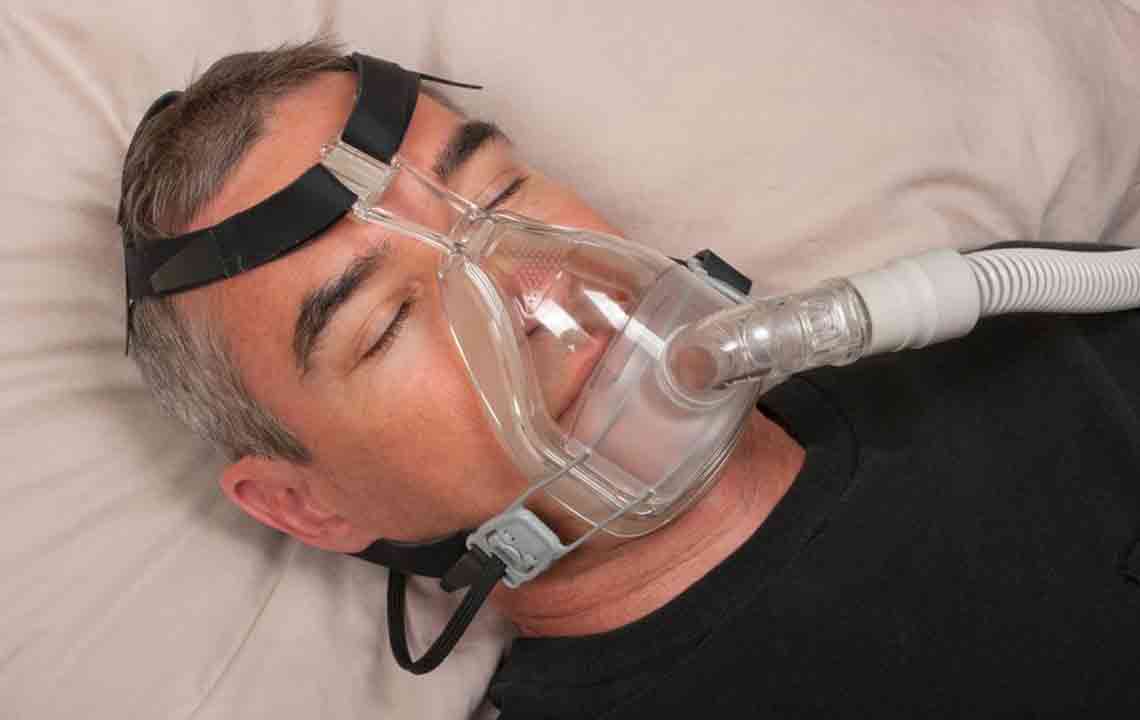Sleep Apnea – Forms, Symptoms, Mouth Guard and More
Sleep apnea is a sleep disorder which causes repeated pauses in breathing while a person is sleeping. The pause in breathing lasts for a few seconds and this is followed by a sudden intake of breath which leads to loud snoring. It disrupts the sleep of the person suffering from this disorder and disturbs those who are sleeping beside that person. This problem is common among children and the elderly.
A severe case of sleep apnea can prove to be fatal as it can lead to heart attack, stroke, irregular heartbeats and blood pressure problems. A person is diagnosed with sleep apnea if he or she experiences the pause in breathing or very shallow breathing five times in an hour.

Forms of sleep apnea
Sleep apnea can occur in three forms.
- The first one is Obstructive Sleep Apnea(OSA) which leads to pauses in breathing due to a blockage in the airflow.
- The second type is Central Sleep Apnea(CSA) which is caused by the lack of effort to breathe as the throat muscles become too relaxed.
- The third type of sleep apnea is a combination of the first and the second type.
The Obstructive Sleep Apnea is more common and it affects males much more than females.
Symptoms of sleep apnea
The symptoms include Excessive Daytime Sleepiness(EDS), lack of concentration, eyesight problems and insomnia.
Some important causes of Sleep Apnea
Obesity is a major risk factor for sleep apnea as most of the people who suffer from this disorder are overweight. Enlarged tonsils or tongue can also cause this problem. Sinus problems cause a blockage in the airflow and if this blockage is not removed, it can lead to sleep apnea. Allergies can lead to pauses in breathing. Having a large neck size or a small jaw bone can contribute to this disorder. People suffering from gastroesophageal reflux may also suffer from sleep apnea.
Treating sleep apnea
- Some basic things that you can do at home to cure sleep apnea in case you are suffering from it are losing weight, changing sleep positions at night to improve breathing, avoid sleeping on your back and stopping the intake of alcohol and sleeping pills. You also need to quit smoking so that your airway does not swell up and cause sleep apnea.
- However, even after following the above suggestions if your sleep apnea problem does not get cured, then you need to take the help of therapy in the form of CPAP or make use of sleep apnea mouth guard and other dental devices. In extreme cases, surgery may also become necessary. CPAP means Continuous Positive Airway Pressure. In this method of treatment, a mask is worn over the nose or the mouth while sleeping and this mask is connected to a machine which delivers a continuous airflow into the nose. But it has been commonly observed that CPAP disrupts the sleep of the person because he or she is constantly aware of the mask. Therefore, dental devices or sleep apnea mouth guard are better options.
- A sleep apnea mouth guard is an oral appliance which is created by a dentist specifically for a person’s mouth. The mouth guard reduces snoring by moving the lower jaw forward. This movement helps in opening the back of the throat as the throat muscles are not allowed to unwind into the back of the throat while sleeping. This leads to an increase in the air passageway which can help in stopping the snoring problem. Most of these mouth guards are completely free of choking hazards and can be easily worn while sleeping. They can be adjusted with the help of hinges and side straps given with the guard. Those who are suffering from dental problems like broken teeth or periodontal disease should avoid wearing such mouth guards.
- You should go for a sleep apnea mouth guard which is designed and customized by your dentists so that they perfectly fit you. Mouth guards are custom molded for every patient. They are built to last so that one mouth guard can be easily used for a year. These guards provide optimal retention as they fit securely into the mouth and support any kind of teeth alignment, tooth size or mouth shape. These guards prevent you from clenching or grinding your teeth at night.
- Mouth guards work better than nasal strips, snore relief pillows and inhalers. You will feel fresh and rejuvenated in the morning after a peaceful night’s sleep if you make use of mouth guards. The sleep apnea mouth guard will relieve you of mouth pain caused by teeth grinding.

